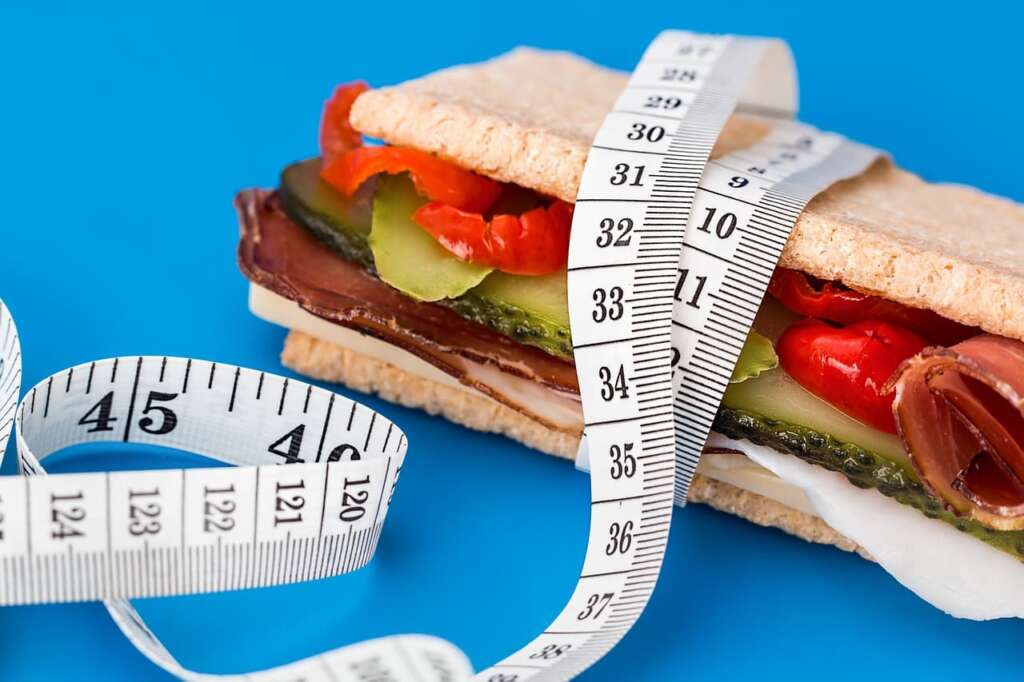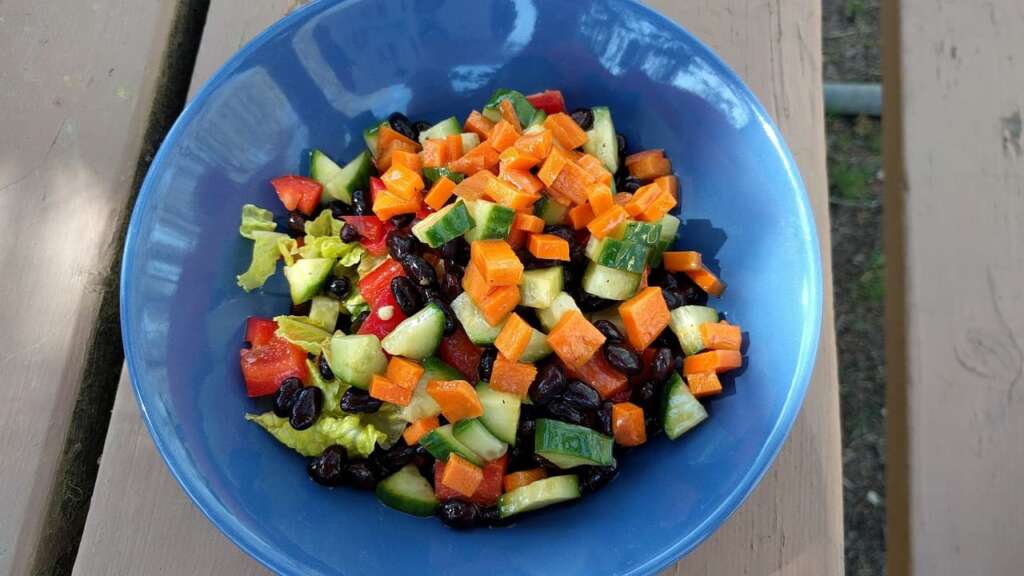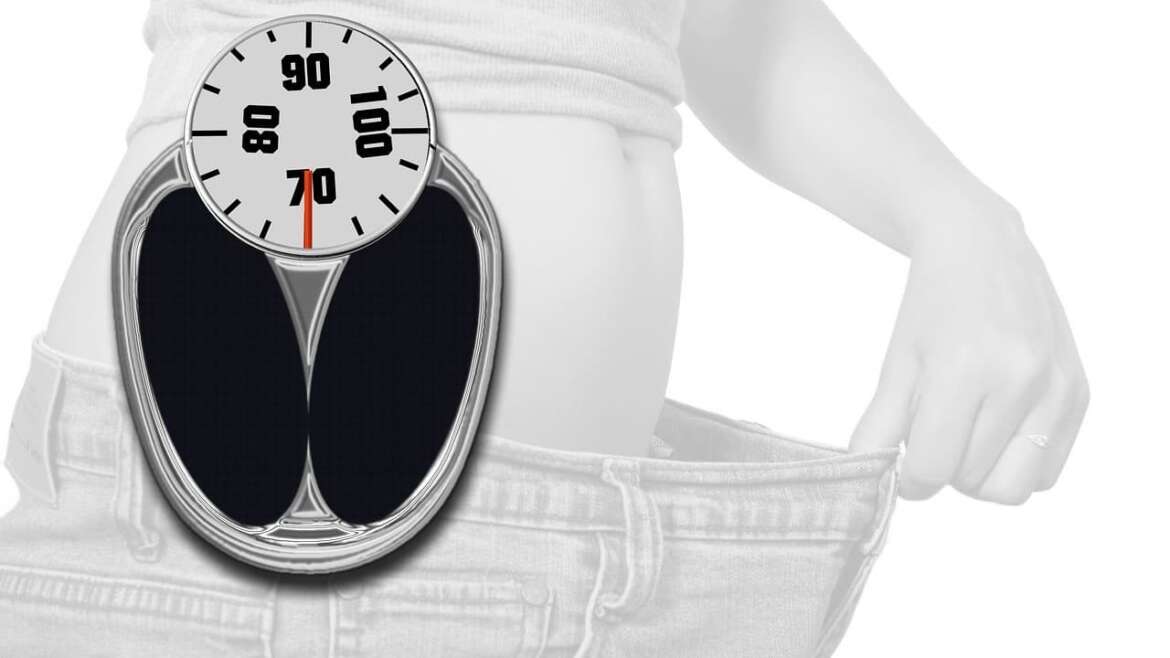Losing weight can be a challenging process, but it doesn’t always require meticulous counting of every calorie consumed. Instead, focusing on healthier lifestyle habits and a balanced approach to nutrition is how to lose weight without counting calories. By prioritizing food quality, incorporating physical activity, and practicing mindful eating, it is possible to shed pounds without obsessing over every detail.
Understanding and choosing nutrient-dense foods is a crucial aspect of this approach. By filling your plate with a variety of fruits, vegetables, lean proteins, and whole grains, you provide your body with the essential nutrients it needs to function optimally. These choices will ensure you consume an ideal balance of macronutrients, vitamins, and minerals while naturally reducing overall calorie intake.
In addition to making thoughtful food choices, incorporating regular physical activity and maintaining a positive attitude towards food and exercise are vital components for success. A healthy lifestyle includes not only what we eat but also how active we are and how we manage stress, sleep, and mindset. By focusing on these key aspects, it’s possible to lose weight in a sustainable and manageable way without the need for strict calorie counting.
Key Takeaways
- Focus on nutrient-dense foods and a balanced approach to nutrition for effective weight loss without counting calories
- Incorporate regular physical activity and maintain a positive attitude toward food and exercise for a holistic approach
- Prioritize stress management, healthy sleep habits, and mindful eating practices for long-term success in managing weight.

Understanding Food Quality
When trying to lose weight without counting calories, it’s essential to focus on the quality of the food consumed. High-quality, nutrient-dense foods help keep you full and satisfied, making it easier to manage your weight. In this section, we’ll discuss various aspects of food quality and how to make better choices for weight loss.
First and foremost, prioritize whole, unprocessed foods. Such foods offer higher nutrient content compared to processed counterparts. Whole foods include fruits, vegetables, whole grains, lean proteins, and healthy fats. Harvard Health suggests that the gut microbiome may influence how many calories the body absorbs from food, meaning whole foods can contribute to a healthier gut environment.
Next, consider macronutrient balance. Aim for meals that include a combination of carbohydrates, proteins, and fats. For example, a balanced breakfast could consist of oatmeal (carbohydrates), Greek yogurt (protein), and nuts (healthy fats). According to Women’s Health, consuming protein at breakfast can be especially beneficial to weight loss efforts.
Here are some high-quality food choices for each macronutrient group:
- Carbohydrates: whole grains, fruits, vegetables, legumes
- Protein: lean meats, fish, tofu, legumes, dairy
- Healthy fats: avocado, nuts, seeds, olive oil, fatty fish like salmon
When shopping, pay attention to food labels. Look for products with minimal added sugars, salt, and unhealthy additives. Phenq.ca recommends familiarizing yourself with the nutritional content of whole foods and understanding the ingredients listed on food labels.
Incorporating a variety of foods into your diet helps ensure you receive all the necessary nutrients and makes it easier to maintain a balanced eating plan. This approach called “Just Eat Real Food” or JERF, emphasizes the importance of nutrients over counting calories.
By understanding and focusing on food quality, you can improve your diet and make weight loss progress without obsessing over calorie counts. Keep these principles in mind and strive to make healthier, more mindful choices throughout your weight loss journey.

Incorporating Physical Activity
One of the most effective ways to lose weight without counting calories is by incorporating regular physical activity into your daily routine. Engaging in different forms of exercise can help you burn calories and create a calorie deficit without focusing on the numbers.
Aerobic exercises such as walking, running, swimming, and cycling can help you burn a significant amount of calories, leading to weight loss. For example, a 30-minute brisk walk can burn around 150 calories, depending on your body weight and walking speed.
Strength training is another important component of a well-rounded fitness routine. Lifting weights, doing bodyweight exercises, or using resistance bands helps to build muscle mass. In turn, increased muscle mass can raise your resting metabolic rate, meaning you’ll burn more calories even when you’re not exercising.
Incorporating physical activity can be as simple as:
- Taking a daily 30-minute walk
- Completing a full-body strength training routine two to three times a week
- Participating in a group fitness class or sports activity
Additionally, finding ways to increase your daily movement can contribute to your weight loss goals. Small changes like taking the stairs instead of the elevator, parking further away from your destination, and using a standing desk can add up over time.
Here are some examples of daily activities and their estimated calorie burn:
| Activity | Calories Burned per 30 Minutes (150 lb person) |
| Walking (3.5 mph) | 149 |
| Bicycling (12-13.9 mph) | 297 |
| Swimming (moderate) | 223 |
| Weightlifting (general) | 112 |
Remember that while physical activity is essential for overall health and weight loss, it should be combined with a balanced diet for the best results. So, even without counting calories, keep in mind the quality of the food you consume and listen to your body’s hunger and fullness cues. And finally, be patient – weight loss is a gradual process, so give yourself time to see the results of your hard work and dedication.

Mindful Eating Practices
Mindful eating is an effective way to lose weight without strictly counting calories. It involves being present and aware of the eating experience, paying attention to the body’s hunger and satiety cues, as well as the quality of the food being consumed. Here are some mindful eating practices that can help in weight loss:
1. Slow down and savour each bite. Taking the time to chew and enjoy the food allows the body to recognize when it is full, preventing overeating. Additionally, slower eating can enhance the flavours and textures of the meal, increasing satisfaction and creating a more enjoyable experience. Try putting the fork down between bites or engage in conversation during the meal, which can naturally extend the eating process.
2. Distinguish between physical and emotional hunger. It’s essential to distinguish between true hunger and non-hunger triggers, such as boredom, stress, or loneliness. Pause and assess the body’s current needs before reaching for food. If hunger isn’t the driving factor, consider alternative coping strategies like engaging in a hobby or calling a friend for support.
3. Listen to your body’s cues. Pay attention to signals of hunger and fullness, and adjust portion sizes accordingly. Some days will naturally require more or less food based on various factors like activity levels, sleep, or stress. Tuning into these cues is a crucial aspect of a sustainable and healthy weight loss journey.
4. Choose nutrient-dense foods. Focusing on whole, unprocessed foods can support weight loss without obsessing over calories. Foods high in fibre, protein, and healthy fats promote satiety and have a lower energy density, which means they provide fewer calories per gram compared to processed options. Some excellent choices include leafy greens, lean proteins, whole grains, and healthy fats like avocado.
Incorporating these mindful eating practices can not only help with weight loss but also foster a healthier relationship with food. Remember that weight loss is a journey, and practicing patience and self-compassion along the way is crucial for sustainable success.

Choosing Nutrient-Dense Foods
Identifying Nutrient-Dense Foods
Nutrient-dense foods are whole, unprocessed foods that are high in nutrients and relatively low in calories. They provide essential vitamins, minerals, fibre, and other nutrients that your body needs for optimal health. Some examples of nutrient-dense foods include:
- Fruits and vegetables: such as spinach, kale, broccoli, berries, and oranges
- Whole grains: such as quinoa, whole wheat, brown rice, and oats
- Lean proteins: such as chicken, turkey, beans, and legumes
- Healthy fats: including avocados, nuts, seeds, and olive oil
Benefits of Nutrient-Dense Foods
Eating a diet rich in nutrient-dense foods can be a key factor in weight loss without counting calories. These foods generally contain fewer calories and are more filling than their processed counterparts, helping you feel satisfied and reducing the likelihood of overeating1. Additionally, a diet high in nutrient-dense foods can enhance overall health, providing a greater sense of well-being, more energy, better digestion, and improved sleep2.
Incorporating Nutrient-Dense Foods into Your Diet
To start making the shift toward a diet rich in nutrient-dense foods, consider the following tips:
- Plan meals around whole foods: Center your meals around vegetables, fruits, lean proteins, and whole grains, rather than processed or refined foods.
- Choose snacks wisely: Opt for healthy options such as fruit, nuts or yogurt over chips, candy, and pastries.
- Cook at home more often: Preparing meals at home allows you to use fresh, whole ingredients and control portion sizes.
- Read labels carefully: Look for products with minimal added sugars, sodium, and artificial ingredients.
By incorporating more nutrient-dense foods into your diet, you can foster healthy weight loss without the need for constant counting of calories.

The Importance of Adequate Hydration
Hydration and Metabolism
Proper hydration is essential for weight loss as it plays a vital role in various bodily functions, including metabolism and digestion. Drinking an adequate amount of water can help your body function more efficiently and even boost your metabolism. Moreover, water is necessary for the transportation of nutrients and the elimination of waste products.
Here are some benefits of staying hydrated:
- Enhanced digestion: Water helps break down food, making it easier for your body to absorb nutrients.
- Increased energy levels: Dehydration can cause fatigue while drinking enough water can improve your energy levels.
- Reduced hunger: Sometimes, we may mistake thirst for hunger. Keeping yourself hydrated may help in curbing your appetite.
A simple guideline to follow is to drink around 9 cups of water per day for females and 13 cups for males.
Choosing Healthy Beverages
Although water is the best choice for hydration, other healthy beverages can also contribute to keeping you well-hydrated. Here are a few beverages that make a great addition to a weight-loss plan without counting calories:
- Green tea: Rich in antioxidants, green tea can help boost your metabolism and aid in weight loss.
- Black coffee: Consumed in moderation, black coffee can increase your metabolism and reduce calorie intake.
- Coconut water: A natural electrolyte, coconut water is low in calories and can help replenish essential minerals.
However, it’s essential to avoid or minimize the consumption of high-calorie and sugar-laden drinks such as sodas, fruit juices, and alcoholic beverages. Instead, opt for healthier options such as herbal teas, fresh vegetable juices, and infused water with fruits, herbs, or vegetables.

Healthy Sleep Habits
One important aspect of weight loss that is often overlooked is maintaining healthy sleep habits. A good night’s sleep is essential for regulating hormones related to hunger and metabolism, such as leptin and ghrelin. Incorporating these sleep-improving strategies can have a positive impact on your weight loss journey.
Create a sleep schedule
Strive for consistency by going to bed and waking up at the same time every day, even on weekends. This helps regulate your body’s internal clock and improves sleep quality.
Limit exposure to screens before bed
Electronic devices emit blue light that can disrupt the production of melatonin, a hormone that regulates sleep. Try to avoid screens at least 30 minutes before bedtime to help your body prepare for sleep.
Establish a relaxing bedtime routine
Incorporating activities such as taking a warm bath, reading a book, or practicing relaxation techniques can help signal your body that it’s time to go to sleep.
Ensure a comfortable sleeping environment
A quiet, dark, and cool bedroom can aid in promoting better sleep. Invest in a comfortable mattress and pillows, and keep the room at a temperature between 60-67°F (15-19°C).
Monitor caffeine and alcohol intake
While caffeine can act as a stimulant and disrupt sleep, alcohol might initially make you feel drowsy but can later cause sleep disruptions. Limit caffeine intake in the afternoon and alcohol close to bedtime to improve sleep quality.
Implementing these healthy sleep habits not only contributes to better sleep but can also support your weight loss efforts by providing your body with the rest it needs to function optimally.
Stress Management and Weight Loss
Stress management plays a crucial role in weight loss, as stress can lead to unhealthy eating habits and a lack of motivation for physical activity. When faced with stress, the body produces cortisol, a hormone that can lead to weight gain. By managing stress effectively, one can create a more conducive environment for shedding pounds.
One effective method to manage stress is through regular exercise. Engaging in activities such as yoga, walking, or swimming can help release endorphins, chemicals that alleviate stress and boost mood. These activities also promote weight loss by burning calories and improving overall fitness. A study has shown that stress can cause unexpected weight loss, and managing it can provide a more stable platform for maintaining a healthy weight.
Incorporating mindfulness practices into daily routines is another way to manage stress. Techniques like meditation, deep breathing, and progressive muscle relaxation can help calm the mind and reduce anxiety levels. By incorporating these practices regularly, individuals can prevent stress from interfering with their weight loss journey.
In addition to exercise and mindfulness practices, individuals should also focus on maintaining a balanced diet. Consuming nutrient-dense foods, such as fruits, vegetables, and whole grains, can provide the body with the necessary energy to combat stress. Furthermore, avoiding excessive caffeine and sugar intake can help maintain steady energy levels throughout the day.
Lastly, getting an adequate amount of sleep is vital for stress management and weight loss. Sleep deprivation can increase cortisol levels, leading to weight gain and emotional eating. Aiming for 7-9 hours of sleep per night can help regulate hormone levels and improve overall well-being.
In conclusion, managing stress is an essential component of successful weight loss. Implementing stress-reducing techniques such as exercise, mindfulness practices, a balanced diet, and proper sleep can significantly improve the weight loss journey.

Maintaining a Positive Attitude towards Food and Exercise
A crucial aspect of losing weight without counting calories is to maintain a positive attitude towards food and exercise. One way to achieve this is by focusing on adding nutritious foods to your diet rather than subtracting indulgent ones. This can help you feel more satisfied and make healthier choices overall.
Regular physical activity is essential for weight loss and overall health. However, it is important to choose exercises that you genuinely enjoy to make them an integral part of your lifestyle. Try various activities, such as swimming, yoga, or hiking, to find what suits you best. Also, remember that progress is gradual, so it’s crucial to be patient and celebrate small victories along the way.
Practicing mindful eating can help you develop a healthier relationship with food. This involves paying close attention to your hunger and satiety signals, savouring each bite, and avoiding distractions while eating. Incorporating these habits can increase your awareness and enjoyment of your meals, making it easier to maintain a balanced diet.
Stress management is another key component of maintaining a positive attitude while pursuing weight loss. High stress levels can lead to poor dietary choices and emotional eating4. Seek out stress management techniques, such as meditation, deep-breathing exercises, or journaling, that resonate with you.
Here are some tips to foster a positive attitude towards food and exercise:
- Prioritize nutrient-dense foods like fruits, vegetables, lean proteins, and whole grains5.
- Embrace a variety of fun workouts to keep you motivated.
- Engage in mindful eating by concentrating on every meal and its flavours.
- Practice stress management techniques to reduce the likelihood of unhealthy food choices.
- Remind yourself that consistent progress is more valuable than quick fixes.
In summary, adopting a positive attitude towards food and exercise is a significant factor in losing weight without obsessing over calories. By embracing a balanced diet, enjoyable activities, mindful eating, and stress management techniques, it’s possible to achieve sustainable weight loss and improved overall well-being.

Final Thoughts…
In summary, losing weight without counting calories is possible through a combination of mindful eating, making nutritious food choices, and incorporating moderate exercise into your daily routine. With these strategies, weight loss can be achieved sustainably and enjoyably.
First, consider adopting a more mindful approach to eating. This means paying attention to your hunger and satiety cues, as well as eating slowly and savouring each bite. By listening to your body’s needs, you can avoid overeating and better manage your energy intake (source).
Next, focus on the quality of the food you eat. Emphasize the intake of nutrient-dense, whole foods such as vegetables, fruits, lean protein, and healthy fat sources. Remember that not all calories are created equal, and choosing nutrient-rich food is essential for overall health and successful weight management (source).
Lastly, incorporate moderate physical activity into your routine. Aim for at least 150 minutes of moderate aerobic exercise or 75 minutes of vigorous aerobic activity every week (source). In addition to aerobic exercises, consider adding strength training exercises to further assist in weight loss and muscle maintenance.
By combining these three strategies, you can lose weight without counting calories, resulting in a healthier and more sustainable approach to weight management.
Frequently Asked Questions
What are the best diets for weight loss without tracking caloric intake?
Several diets focus on the quality of food and eating patterns rather than strict caloric intake. Some popular options include the Mediterranean Diet, Whole30, and Just Eat Real Food (JERF), which emphasize whole, nutrient-dense foods and balanced meals. These diets can help with weight loss by naturally reducing calorie intake without the need for meticulous counting.
What strategies can help you lose weight without feeling hungry?
To lose weight without feeling hungry, it’s essential to prioritize foods high in fibre, protein, and healthy fats. Foods like vegetables, fruits, whole grains, lean proteins, and nuts can help you feel fuller for longer, reducing the need to snack on high-calorie options. Additionally, staying hydrated and practicing mindful eating techniques can help control hunger and increase the effectiveness of weight loss efforts.
How to achieve a calorie deficit without strict calorie counting?
Creating a calorie deficit can be achieved indirectly by adopting healthy habits without the need for strict tracking. Some approaches include focusing on portion control, using the plate method to balance meals, avoiding sugary drinks, incorporating more physical activity into your daily routine, and eating more of your meals at home.
What are some habits to adopt for natural weight loss?
Some effective habits for natural weight loss are:
- Eating slowly and mindfully, focusing on hunger and satiety cues
- Drinking water before meals to aid digestion and control hunger
- Prioritizing sleep and managing stress to reduce cortisol levels, which can contribute to weight gain
- Regular physical activity, including both cardiovascular exercise and strength training
- Making healthier food choices by selecting whole, minimally processed, nutrient-dense foods over processed options
How to lose belly fat while not focusing on calorie counting?
Losing belly fat without calorie counting involves a combination of dietary changes and physical activity. A healthy diet rich in fruits, vegetables, lean proteins, whole grains, and healthy fats can indirectly reduce calorie intake and promote fat loss. Incorporating both cardio and strength training exercises, especially core-focused exercises, can help tone the abdominal area and reduce belly fat.
What are some tips for weight maintenance without tracking calories?
Weight maintenance without tracking calories can be achieved by continuing to prioritize whole foods, practicing portion control, and staying active. Mindfulness techniques, such as mindful eating and stress management, can also play an essential role in maintaining a healthy weight. Regularly monitoring progress through non-scale victories, such as improved fitness levels or clothes fitting better, can help provide motivation and a sense of accomplishment without fixating on numbers.

